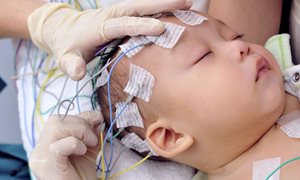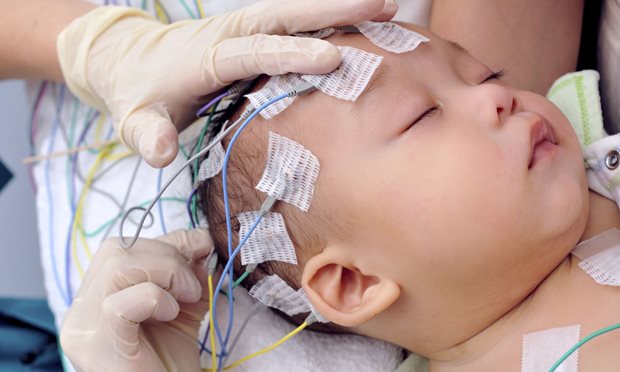

About
We are one of three science departments; a department with the core tasks of research and education. We explore the development and function of the nervous system in health and disease, with a special focus on neurodevelopmental, stress-related and sensory disorders.
It is our goal to have a significant impact on health, prevention, and innovation of care. We aim to achieve this through research increasing our understanding of the development, function, and plasticity of the brain as well as through teaching the next generation of professionals on these topics. With our multidisciplinary team, we focus on neurodevelopmental and stress-related processes in brain health and disease, integrating research from molecule to man and population.
Head of department

prof. dr. Barbara Franke
Contact
-
Secretariat CNS
+31 (0) 24 361 42 44
-
Mariëlle Langereis
-
Click here for an overview of the Operations Staff.
read more
Operations
Managing Director: Arthur Willemsen
Manager Business Operations: Nicolien Beld
Assistant Business Operations : Nino Calò
Management Assistant: Nadine Brouwer
Management Assistant: Ellen Evers
Management Assistant: Erna Sommer-Verploegen
Phone number: +31 (0)24 361 42 44 -
Trigon, route 200, kamer 02.275
024 (36) 14244
Our researchers Cognitive Neuroscience
A list of researchers connected to this department.
read moreGetting there
Visiting address
Donders Institute for Brain, Cognition and Behaviour
Kapittelweg 29
6525 EN Nijmegen
Directions



Internships
Animal research
internships
-
Focus: Investigation of the role of serotonin in neurodevelopment and how it is additionally modulated by environmental factors in the context of individual differences in behaviour and risk for psychiatric disorders like anxiety, depression, autism and drug addiction. Techniques involve behaviour and in vivo brain measures and manipulations, as well as ex vivo molecular and neuroanatomical assessments.
Contact: Prof. dr. Judith Homberg
Email: Judith.Homberg@Radboudumc.nl
>More information -
Focus: Investigation of the effects of stress and emotional arousal on rodent models of brain activity and learning and memory and possible consequences for neuropsychiatric disorders.
Contact: Prof. Dr. Benno Roozendaal
Email: B.Roozendaal@radboudumc.nl
>More information -
Focus: Investigations of structural/functional (re)organization of excitatory/inhibitory neuronal networks in health and disease. Methods encompass cell culture, in vitro electrophysiological, immunohistochemical and neuroanatomical techniques in the rodent brain or human iPSP derived neuronal cultures. Research focuses on models for neurodevelopmental distortions including schizophrenia and intellectual disability.
Contact: Dr. Dirk Schubert
Email: d.schubert@donders.ru.nl
>More information -
Focus: Gain insight into the molecular and mechanistic underpinnings of neurodevelopmental disorders such as intellectual disability and autism, using in vitro and in vivo research approaches.
Contact: Prof. Dr. Hans van Bokhoven.
Email: Hansvanbokhoven@radboudumc.nl
> More information -
Focus: molecular mechanisms of synaptic plasticity in the context of neurodevelopmental disorders such as autism and intellectual disability. We use animal and cellular human (IPS) models combined with molecular and electrophysiological methods to study the function of genes in learning and memory processes.
Contact: Dr. Nael Nadif Kasri
Email: n.nadif@donders.ru.nl
>More information -
Focus: We develop and apply neuroimaging technologies in animal models to identify the distributed neuronal networks implicated in mental health disorders. We combined non-invasive magnetic resonance imaging with genetically targetted neuromodulatory tools to examine the causal mechanisms supporting brain organization and function, and its dynamical adaptations to stressors.
Contact: Dr. Joanes Grandjean
Email: joanes.grandjean@radboudumc.nl
> More information -
Focus: Investigation of how stress exposure can lastingly affect brain function, and how this is different between distinct individuals, using animal models that allow for controlled study of the mechanistic underpinnings. The focus is on relating behavioral outcomes to brain function at the neural circuit level, combined with molecular studies to provide detailed mechanistic insight in the causes of altered neuronal circuit structure and function.
Contact: Dr. Marloes Henckens
Email: Marloes.Henckens@radboudumc.nl
> More information
-
Focus: Investigations into large-scale oscillatory synchronization of the human brain using combined electrical stimulation (TACS) and EEG or MEG. The research combines modern techniques for manipulating and measure human brain activity with cutting-edge data analysis tools.
Contact: Dr. Michael Cohen
E-mail: m.cohen@donders.ru.nl
> More information
Human research
internships
-
Focus: Estimating the electric activity of the heart and the brain from recorded signals at the body surface, and computing the currents inside the brain from electric or magnetic stimulation outside the head.
Contact: Dr. Thom Oostendorp
Email: T.Oostendorp@donders.ru.nl -
Focus: Vision, visuo-motor integration and visual restoration following stroke; imaging, behavior, modeling.
Contact: Dr. Bert van den Berg
Email: a.vandenberg@donders.ru.nl -
Focus: Research using human brain imaging, psychophysiology, and psychopharmacology on the neural basis of cognitive and affective processes, with the ultimate goal to advance treatment of stress-related psychopathology.
Contact: Dr. Erno Hermans
E-mail: erno.hermans@donders.ru.nl
>More information -
Focus: Environmental factors and mechanisms that shape early and long-term human development, using psychological and biological perspectives. Interdisciplinary methods and areas of interest that include stress, caregiving, health, intestinal microbiota, behavior, breast milk, and interventions.
Contact: Prof. Dr. Carolina de Weerth
E-mail: Carolina.deWeerth@radboudumc.nl
> More information
-
Focus: Human cognitive neuroscience studying the brain basis of memory, emotion, and their interactions. An interdisciplinary approach is applied integrating cognitive neuroimaging, genetics, pharmacology and diverse clinical disciplines.
Contact: Prof. Dr. Guillén Fernández
Email: g.fernandez@donders.ru.nl
>More information -
Focus: Cognitive, neural and genetic mechanisms involved in neurodevelopmental disorders (ADHD, autism, Conduct Disorder/Psychopathy) over the lifespan; including identifying new molecular targets for treatment, and developing and testing effective non-pharma (diet and mindfulness) and biological/pharma interventions.
Contact: Prof. Dr. Jan Buitelaar
Email: Jan.Buitelaar@radboudumc.nl
>More information -
Focus: Mechanisms underlying ADHD in the context of normal and positive psychological functioning, using behavioural genetic (twin, family, molecular genetic) designs and neuroimaging. Mindfulness training as an intervention for children with ADHD and their parents. Positive mental health.
Contact: Dr. Corina Greven
E-mail: c.greven@donders.ru.nl
>More information -
Focus: To develop statistical and machine learning techniques for making predictions relevant to brain disorders and to understand their underlying neurobiology on the basis of neuroimaging data.
Contact: Dr. Andre Marquand
E-mail: a.marquand@donders.ru.nl
>More information -
Focus: Understanding the link between genetic liability for different neurodevelopmental and psychiatric disorders, the brain structure, and long-tern functional outcomes using neuroimaging, genome-wide statistics, longitudinal data and multivariate statistics.
Contact: Emma Sprooten
E-mail e.sprooten@donders.ru.nl
-
Focus: Memory enhancement by sleep and other interventions, such as mnemonic strategies and memory training. Neural basis of cognitive processes during sleep, including dreaming. Healthy subjects and patients with affective disorders.
Contact: Dr. Martin Dresler
E-Mail: martin.dresler@donders.ru.nl
> More information
-
Do gut bacteria interfere with depression?Effectiveness antidepressants may be improved11 October 2023
-
Adversities permanently change our brainsAn aberrant reaction to adversities may increase the risk of psychiatric disorders22 August 2023
-
New maps reveal the individual brain changes linked to different mental illnesses15 August 2023
